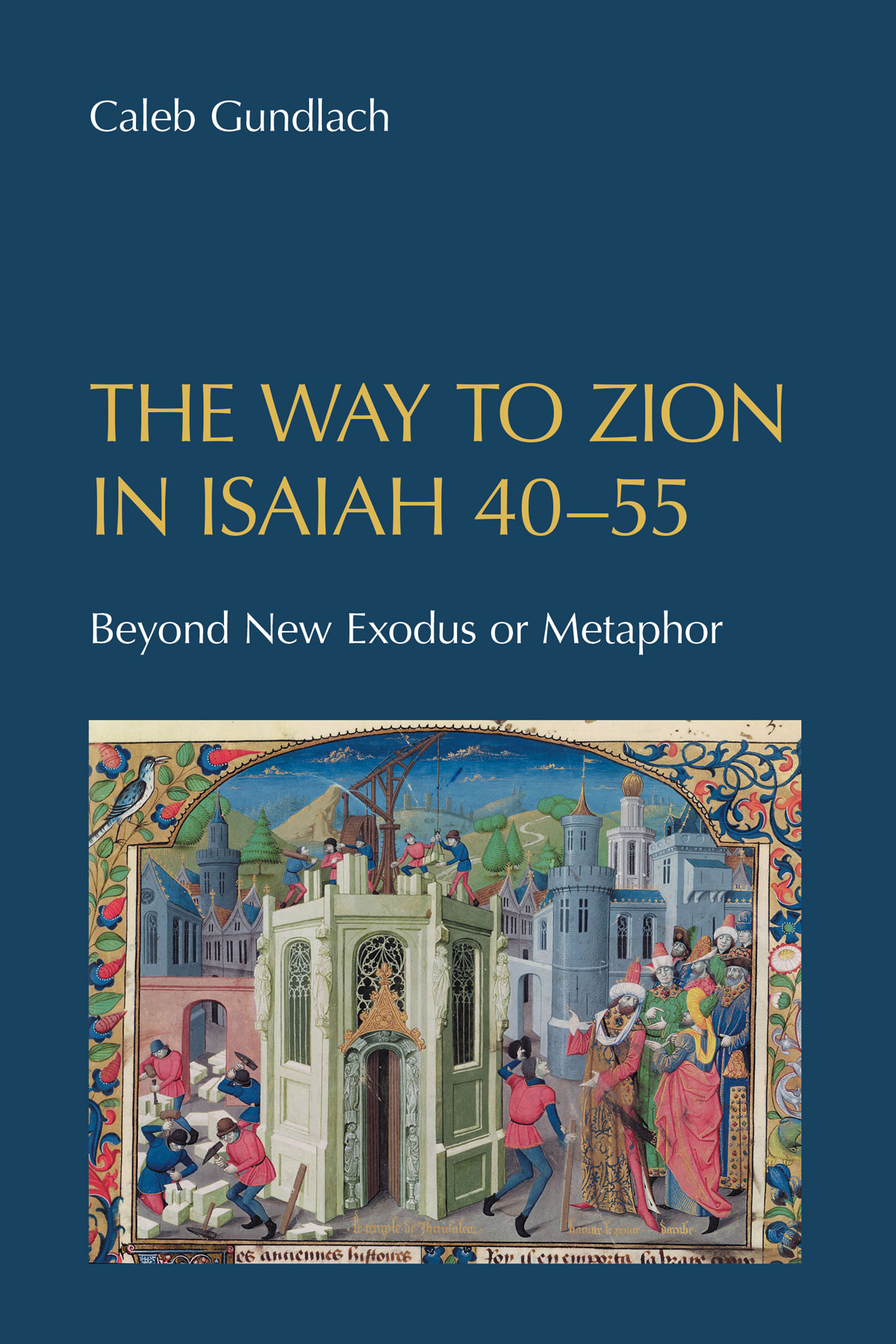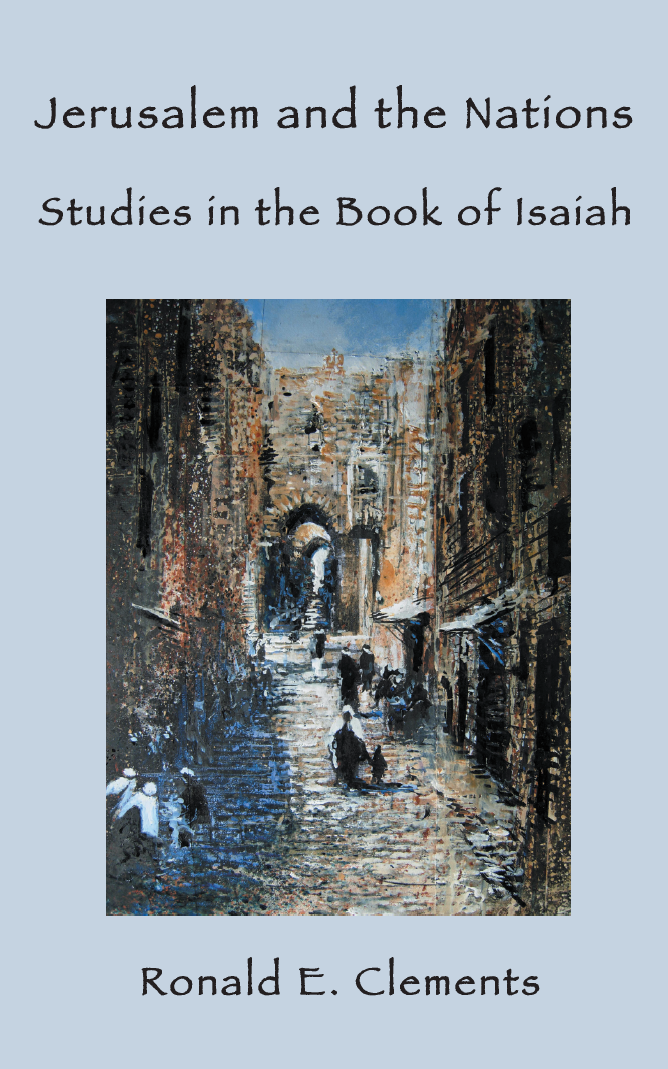Sale
The Way to Zion in Isaiah 40-55: Beyond New Exodus or Metaphor
Published: Jun 2023
Original price was: £70.00.£30.00Current price is: £30.00.
Entering into a longstanding debate in Isaiah research on 'way' language in chapters 40–55 comes The Way to Zion in Isaiah 40–55. This discussion concerns whether the 'way' is best understood as a new exodus of the exiles from Babylon or instead as a metaphor signifying the transformation of Jerusalem from a place of judgement to a place of redemption.
Caleb Gundlach’s study contributes to this debate by arguing that the pilgrimage to Zion becomes a prevalent aspect of the 'way' theme in Isaiah 40–55 and influences how the homecoming is envisioned in these chapters. Firstly, it lays out criteria for recognizing the pilgrimage to Zion as the predominant journey type in Isaiah 49–55. It then explores the relationship of this pilgrimage journey to the major theme of Zion’s restoration within Isaiah 40–55, a theme also emphasized by metaphorical interpretations of the 'way'.
Resituating the homecoming material within the perspective of pilgrimage to Zion sheds light on other interpretive debates on Isaiah 40–55, including:
- the Babylonian or Judahite provenance for the text;
- emphasis on either the text’s compositional stages or its thematic coherence;
- thematic tensions, such as between Zion’s restoration and the Servant’s mission to the nations.
Reconsidering Isaiah’s 'way' imagery under the paradigm of the pilgrimage to Zion provides new avenues for negotiating these issues and takes a further step towards understanding how Isaiah 40–55 coheres as a meaningful and complex unity.
Sale
The Way to Zion in Isaiah 40-55: Beyond New Exodus or Metaphor
Original price was: £70.00.£30.00Current price is: £30.00.
Entering into a longstanding debate in Isaiah research on 'way' language in chapters 40–55 comes The Way to Zion in Isaiah 40–55. This discussion concerns whether the 'way' is best understood as a new exodus of the exiles from Babylon or instead as a metaphor signifying the transformation of Jerusalem from a place of judgement to a place of redemption.
Caleb Gundlach’s study contributes to this debate by arguing that the pilgrimage to Zion becomes a prevalent aspect of the 'way' theme in Isaiah 40–55 and influences how the homecoming is envisioned in these chapters. Firstly, it lays out criteria for recognizing the pilgrimage to Zion as the predominant journey type in Isaiah 49–55. It then explores the relationship of this pilgrimage journey to the major theme of Zion’s restoration within Isaiah 40–55, a theme also emphasized by metaphorical interpretations of the 'way'.
Resituating the homecoming material within the perspective of pilgrimage to Zion sheds light on other interpretive debates on Isaiah 40–55, including:
- the Babylonian or Judahite provenance for the text;
- emphasis on either the text’s compositional stages or its thematic coherence;
- thematic tensions, such as between Zion’s restoration and the Servant’s mission to the nations.
Reconsidering Isaiah’s 'way' imagery under the paradigm of the pilgrimage to Zion provides new avenues for negotiating these issues and takes a further step towards understanding how Isaiah 40–55 coheres as a meaningful and complex unity.
Sale
Jerusalem and the Nations: Studies in the Book of Isaiah
Published: Sep 2011
Original price was: £50.00.£19.50Current price is: £19.50.
This volume contains the fruit of three decades of Ronald Clements's researches on prophecy in the Old Testament. In sixteen papers, seven of them not previously published, he broaches several leading questions about the origins of written prophecy in the Old Testament. A major focus is on the impact of the events of 701 BCE on the formation of the Isaiah book as a whole and the rise of Jerusalem as a centre of religious hope.
Further studies deal with the role of the Isaiah book in current biblical interpretation and the failure of twentieth-century interpreters to explain its unity. Other subjects concern ideas of divine providence, theodicy, and the links between ancient scribal methods of book formation and canonical authority. Special attention is given to the attempts to retain traditional Christian approaches to a book, the interpretation of which has been greatly transformed by modern critical study.
Sale
Jerusalem and the Nations: Studies in the Book of Isaiah
Original price was: £50.00.£19.50Current price is: £19.50.
This volume contains the fruit of three decades of Ronald Clements's researches on prophecy in the Old Testament. In sixteen papers, seven of them not previously published, he broaches several leading questions about the origins of written prophecy in the Old Testament. A major focus is on the impact of the events of 701 BCE on the formation of the Isaiah book as a whole and the rise of Jerusalem as a centre of religious hope.
Further studies deal with the role of the Isaiah book in current biblical interpretation and the failure of twentieth-century interpreters to explain its unity. Other subjects concern ideas of divine providence, theodicy, and the links between ancient scribal methods of book formation and canonical authority. Special attention is given to the attempts to retain traditional Christian approaches to a book, the interpretation of which has been greatly transformed by modern critical study.


